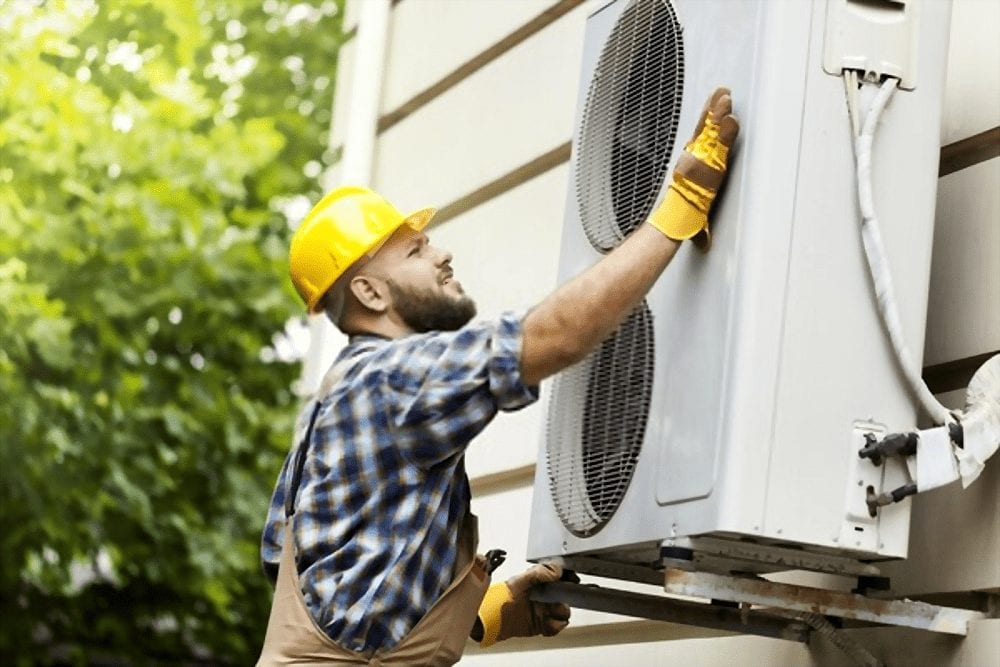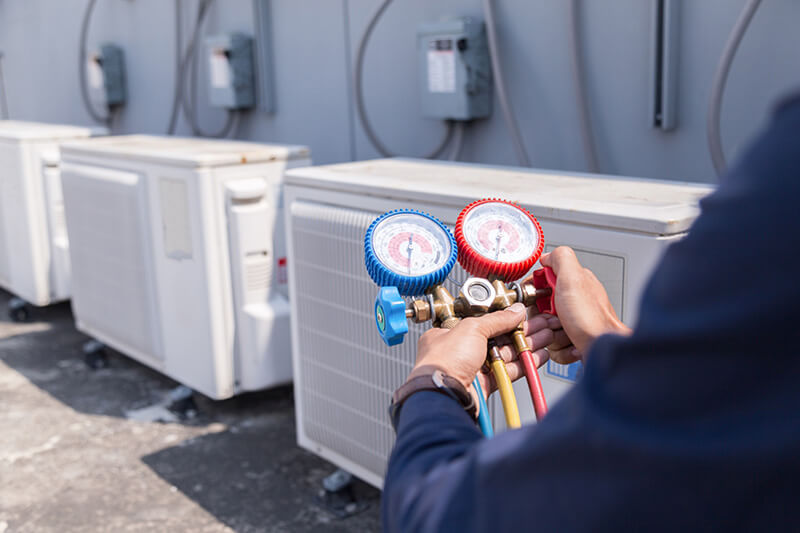How to Save on Your furnace replacement Project
How to Save on Your furnace replacement Project
Blog Article
Picking Between a Warmth Pump and Heating System: Key Factors To Consider for Your Heating And Cooling Demands
When assessing home heating choices for heating and cooling needs, the decision in between a warmth pump and a heating system can be intricate. Each system uses distinct benefits customized to certain environments and power performance goals. Recognizing these distinctions is essential for making an informed selection. Trick variables such as installation costs and environmental impact further complicate the choice process. Which choice truly aligns with one's convenience and sustainability preferences? The following areas will certainly discover these considerations carefully.
Comprehending Warmth Pumps: How They Work and Their Benefits
While many home owners think about various heating alternatives, recognizing how heatpump function and their benefits can substantially affect their choice. Heat pumps run by moving warmth instead than producing it. In the winter, they extract warm from the outside air or ground and move it indoors, while in the summer season, they reverse this procedure, cooling down the home by removing warm outside. This twin performance makes them versatile for year-round environment control.One of the main advantages of heatpump is their energy performance. They utilize significantly less electrical power contrasted to traditional furnace, potentially leading to lower utility bills (heat pump service). In addition, heatpump have a smaller carbon footprint, making them an eco pleasant option. They also need less upkeep than conventional systems, adding to lasting cost financial savings. In general, understanding the mechanics and advantages of heat pumps can aid property owners make notified decisions concerning their heating and cooling down requirements
Exploring Furnaces: Types, Procedure, and Benefits
Heaters are available in different types, including gas, electrical, and oil designs, each with distinctive operational mechanisms. Comprehending these differences is necessary, as they affect effectiveness and home heating efficiency. Additionally, furnaces supply countless advantages, such as consistent heat result and dependability in colder environments.
Kinds of Furnaces
Heater can vary considerably in layout and operation, with furnaces being a preferred option among home owners. There are a number of sorts of heaters, each using different gas sources and modern technologies. Gas heaters prevail, leveraging gas to create warmth effectively. Electric furnaces, on the various other hand, utilize electrical resistance to generate heat, frequently preferred for their straightforward installment. Oil furnaces, while much less usual, work in locations with minimal gas gain access to (ductless mini splits). In addition, condensing furnaces make best use of power efficiency by reusing and capturing exhaust gases. Each type operates with a system of warm exchangers and ductwork to disperse warm air throughout a home. Comprehending the differences between these heating system kinds is important for notified cooling and heating choices
Advantages of Furnaces
For house owners looking for reliable warmth throughout cool months, the benefits of furnaces are significant. Heating systems give consistent heating, ensuring also temperatures throughout the home. They are particularly efficient in extreme chilly, commonly surpassing heatpump in icy problems. Numerous kinds, consisting of gas, electrical, and oil heaters, offer flexibility to satisfy varied requirements and preferences.Furnaces also tend to have lower preliminary installment costs contrasted to heatpump, making them a much more easily accessible alternative for numerous. Their durable style adds to a much longer life-span, with lots of systems lasting over 15 years with proper upkeep. Additionally, modern heaters are frequently equipped with advanced modern technology for boosted efficiency, which can result in decreased energy bills. On the whole, heaters continue to be a trustworthy option for effective home heating.

Power Effectiveness: Comparing Warm Pumps and Furnaces
When comparing energy efficiency in between heatpump and heaters, the Seasonal Power Performance Ratio (SEER) plays a necessary role in figuring out efficiency. In addition, an operational expense analysis discloses the lasting economic implications of each system. Comprehending these factors can direct home owners in making educated decisions about their heating services.
Seasonal Energy Effectiveness Proportion
Power performance plays an essential role in the decision-making process between heatpump and heating systems, especially when thinking about the Seasonal Energy Performance Ratio (SEER) This statistics actions the cooling performance of warmth pumps over a whole air conditioning period, giving a standard means to review efficiency. Higher SEER ratings indicate greater energy efficiency, equating to reduced energy usage and minimized energy bills. In contrast, furnaces are generally evaluated using the Annual Gas Application Performance (AFUE) score, which reflects home heating performance. When contrasting these two systems, homeowners need to focus on SEER scores for heat pumps, as they straight effect general energy financial savings and ecological sustainability. A complete understanding of SEER can significantly influence the long-term contentment and cost-effectiveness of the selected HVAC solution.
Operational Cost Evaluation
Recognizing the operational costs related to heatpump and heaters is vital for property owners reviewing their alternatives. Heat pumps usually use greater power effectiveness, transforming electric power into warmth with minimal waste. This leads to reduced month-to-month energy expenses, particularly in modest climates. Alternatively, conventional heaters, especially gas versions, may have reduced upfront expenses yet can sustain higher operational expenditures over time because of sustain prices and performance ratings.Moreover, heat pumps can operate as both heating and cooling systems, possibly lowering the need for different HVAC systems. While first investments for heatpump might be greater, their lasting savings in energy efficiency can make them a more economical selection for many families. Mindful analysis of local energy rates is important to determine the very best choice.
Installment Costs: What to Expect for every Heating System
Setup prices for home heating systems can vary considerably in between heatpump and heating systems, affecting home owners' choices. Warmth pumps usually have higher ahead of time installation prices, generally ranging from $3,500 to $8,000, depending on the unit dimension and intricacy of setup. This includes the outdoor unit, interior handling system, and essential ductwork alterations. Alternatively, heating systems have a tendency to have lower preliminary costs, averaging between $2,500 and $6,000, which can be appealing for budget-conscious house owners. Installment costs can increase if extensive ductwork is required.Moreover, the selection of fuel kind for heating systems-- natural gas, gas, or electric-- can also impact setup expenses. While warm pumps supply power effectiveness, their initial financial investment might prevent some purchasers. go right here Ultimately, reviewing installment costs along with long-lasting savings and effectiveness will aid house owners in making informed decisions about their furnace.
Environment Considerations: Which System Executes Better in Your Location
How do climate problems influence the performance of heater? The performance of warmth pumps and furnaces can differ greatly depending on the local environment. In modest climates, heatpump excel by effectively moving heat from the outside air, making them an energy-saving option. Their effectiveness lessens in incredibly chilly temperature levels, where they may have a hard time to draw out enough heat. On the other hand, heaters, particularly gas models, offer reliable and consistent heat no matter outdoor conditions, making them more effective in cooler regions.In locations that experience milder winters months, heat pumps can operate efficiently year-round, providing both heating & cooling. In contrast, regions with severe winter seasons commonly gain from the toughness of heaters. Inevitably, comprehending the neighborhood climate is essential when making a decision between a warmth pump and a furnace, as it directly affects their functional performance and general performance.
Maintenance Needs: Long-Term Look After Heat Pumps vs. Furnaces
While both warmth pumps and heating systems call for normal upkeep to ensure peak efficiency, their particular requirements and care routines differ considerably. Heaters normally need much less frequent focus, with annual examinations sufficing to inspect for gas leakages, clean filters, and examine overall capability. Their easier layout typically allows for simple repairs.In comparison, heatpump demand biannual upkeep due to their double duty in heating and air conditioning. This consists of cleaning coils, examining refrigerant levels, and making sure that both the indoor and outside devices operate at their ideal. Furthermore, heatpump maintenance commonly involves more complex parts, making professional servicing essential.Neglecting upkeep can bring about decreased efficiency and increased power costs for both systems. Ultimately, homeowners need to think about these long-lasting treatment needs when choosing between a warm pump and a heater, as aggressive upkeep can extend the lifespan and performance of either system significantly.
Ecological Influence: Picking a Lasting Heating Option
The environmental effect of heater is a critical evaluation for property owners seeking sustainable options. Warm pumps are typically a lot more energy-efficient than standard heaters, as they move warm instead of produce it, considerably minimizing carbon discharges. By making use of renewable power resources, such as geothermal or air-source heatpump, property owners can additionally lessen their environmental footprint.On the other hand, gas heaters send out greenhouse gases and add to air contamination, though they typically offer higher warmth outcome. Nevertheless, developments in technology have actually led to the growth of high-efficiency heating systems that reduce emissions.Ultimately, picking a heating unit includes considering effectiveness versus ecological effect. Property owners are encouraged to review regional power sources and motivations for sustainable systems, ensuring a selection that aligns with both individual comfort and ecological responsibility. The decision affects not just prompt convenience yet additionally lasting sustainability and ecological health and wellness.
Regularly Asked Concerns
Just How Long Do Warm Pumps and Furnaces Usually Last?
The life-span of warm pumps commonly ranges from 15 to twenty years, while furnaces can last between 15 to three decades. Regular maintenance significantly influences their longevity and effectiveness in giving heating solutions.
Can I Use a Heatpump in Extremely Cold Climates?
Heatpump can run in extremely cold climates, however their performance decreases as temperatures drop. In such conditions, supplementary home heating sources may be required to preserve comfy interior temperature levels and assure click this peak performance.

What Is the Sound Degree of Heat Pumps Versus Furnaces?
The sound levels of heatpump and heaters vary considerably. Normally, warm pumps run more quietly than conventional furnaces, making them more suitable for those sensitive to sound, while heating systems may generate louder operational sounds throughout heating cycles.
Are Warmth Pumps Suitable for Both Heating and Air conditioning?
Warm pumps are certainly ideal for both cooling and heating (heat pump installation ooltewah tn). They work by moving heat, supplying efficient temperature level control year-round, making them a flexible option for house owners looking for an all-in-one HVAC option
What Size Heater Do I Required for My Home?
Establishing the suitable dimension heater for a home requires assessing variables such as square footage, insulation high quality, neighborhood climate, and the home's layout. Consulting an expert can assure an accurate assessment and optimal convenience. Heat pumps usually supply greater power efficiency, converting electrical power right into warmth with minimal waste. In modest environments, warm pumps stand out by efficiently transferring warmth from the outside air, making them an energy-saving choice. Alternatively, furnaces, particularly gas models, offer regular and reliable heat regardless of outdoor conditions, making them preferable in colder regions.In locations that experience milder winters, heat pumps can run effectively year-round, giving both heating and air conditioning. Warm pumps are usually a lot more energy-efficient than standard see heating systems, as they move warm instead than produce it, substantially lowering carbon exhausts. By using renewable energy resources, such as air-source or geothermal warm pumps, house owners can additionally reduce their ecological footprint.On the various other hand, all-natural gas heating systems give off greenhouse gases and contribute to air contamination, though they commonly supply higher warm outcome.
Report this page